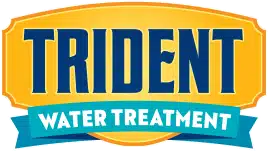What do a non-stick pan, a stain-resistant table raincoat, takeaway containers, and firefighting foam all have in common? Per- and Polyfluoroalkyl Substances or PFAS. Better known as “forever chemicals”, PFAS don’t break down easily so they linger in soil, water, and even in the bodies of humans and animals for years. These substances have been linked to a variety of health issues, including cancer, and have been shown to affect development in key stages of life like early pregnancy and childhood. And now, on a national stage, these chemicals have officially been recognized as a threat to our health, wellness, and safety.
Federal Regulations on PFAS:
Today, the U.S. Environmental Protection Agency (EPA) announced groundbreaking federal regulations on six PFAS chemicals in drinking water. As of April 10, 2024, the Biden-Harris Administration has issued the first-ever national, legally enforceable drinking water standard to protect communities from harmful exposure to PFAS. Before today, we were aware of the threat of PFAS, but there were no federal regulations to guide us in the treatment of these forever chemicals in our water supplies. Now, with these regulations in place, we know what to look for and the best way to treat water to make it safe to drink.
New Jersey’s Role in Addressing PFAS:
For years, New Jersey has been at the forefront of action, being one of the first states to propose and adopt regulations, setting a Max Contaminant Level (MCL) for perfluorononanoic acid (PFNA), PFOA, and PFOS (all groups of PFAS chemicals). Specifically in Mercer County, towns like Hopewell and Princeton have been very concerned about PFAS contamination. Residents have successfully utilized NJ’s Spill Fund Program to obtain safe drinking water. New Jersey has also implemented regulations regarding real estate transfers, requiring PWTA testing to ensure that buyers and sellers are aware of their water quality before any transactions.
Implications for New Jersey Communities:
The regulations set today by the federal EPA are even more stringent than New Jersey’s previous PFAS MCL standards. Looking to the future, this announcement will positively impact our communities. Having set regulations encourages property owners to be aware of their water quality, and empowers us all to take action to ensure that the water we drink is safe.
Action Steps for Residents:
The EPA recommends using certified filters to remove or reduce PFAS in water. At a very minimum, the treatment should include some version of Granular Activated Carbon (GAC). Other filters that are effective at reducing PFAS include Charcoal filters, Reverse Osmosis (RO) systems, or Ion Exchange Resins. Be sure to check that the filter you choose is certified by an accredited body.
Trident’s Expertise in Addressing PFAS:
We at Trident have been following all developments on PFAS since the very beginning. With our knowledge, expertise, and top-of-the-line equipment, there’s no reason to panic. We are experienced at testing for PFAS and treating your water to remove them. We offer installation of ANSI-accredited certified WaterCare Reverse Osmosis Filters and NSF Certified Carbon Block or Ion Exchange Filters. At the same time, we guarantee to provide trusted 5-star maintenance so that your water stays safe and your family stays healthy for many years to come.
We are experienced at testing for PFAS and treating your water to remove them. For certified PFA testing, we send all samples to our friends at Innovative Water Solutions Laboratories in Bordentown NJ, an independent certified third-party laboratory.
